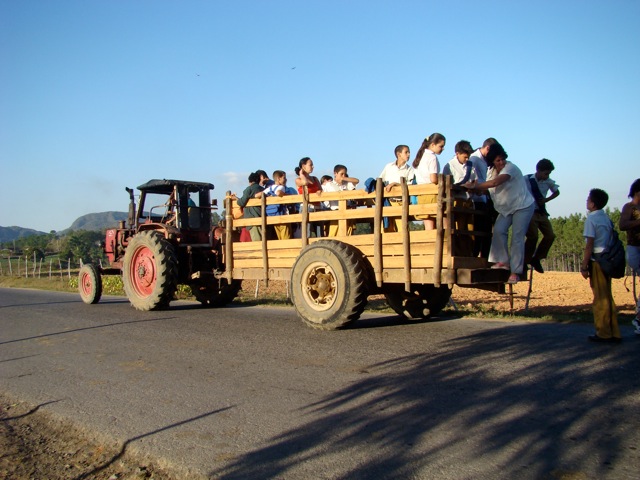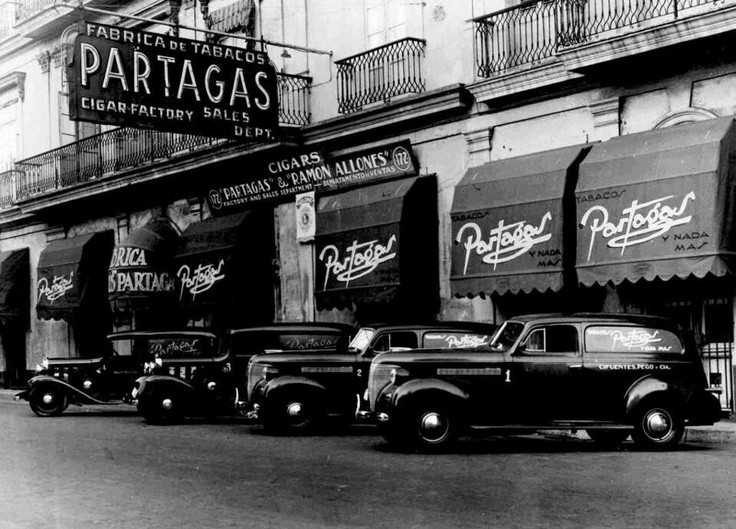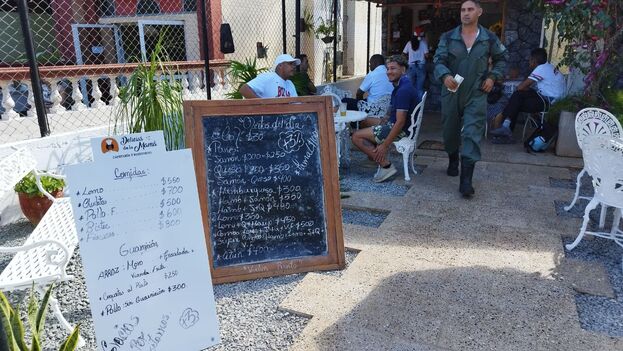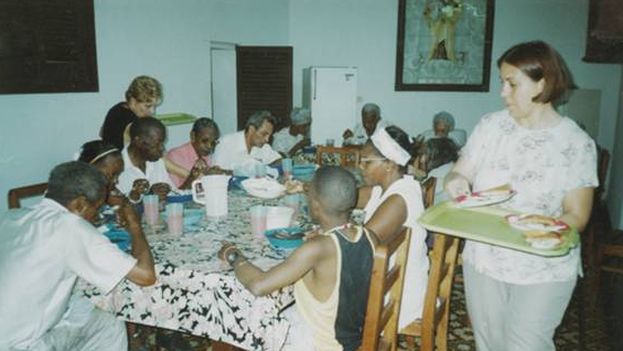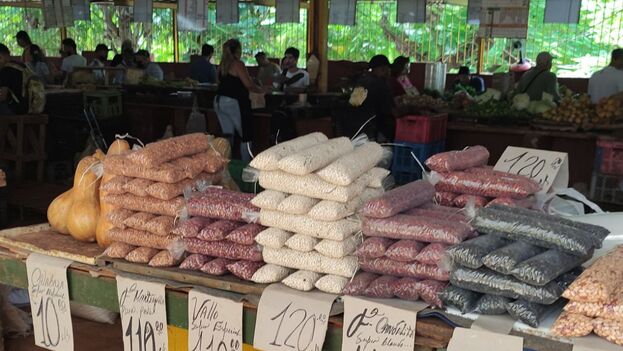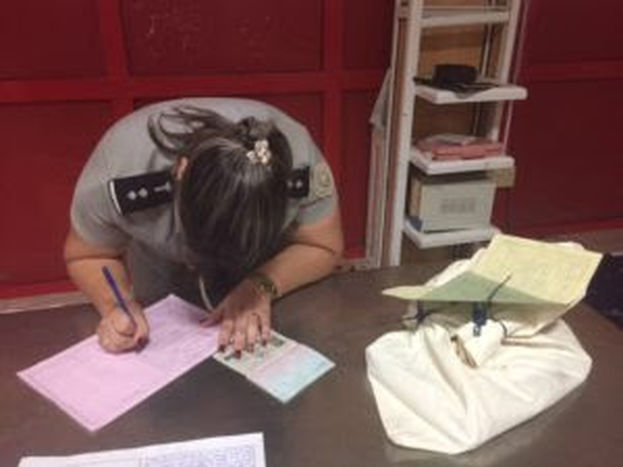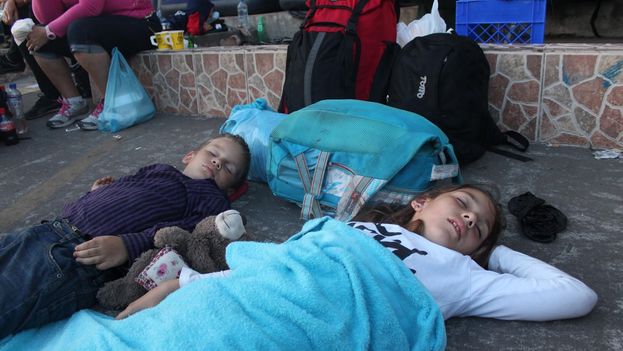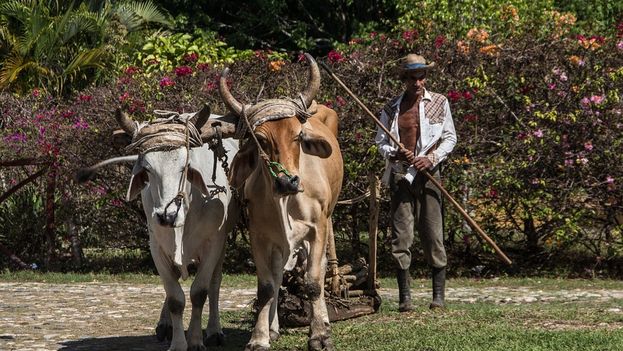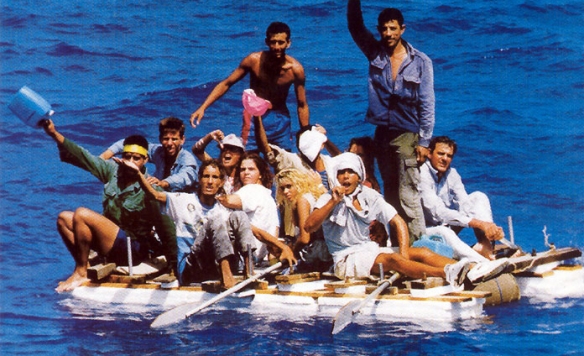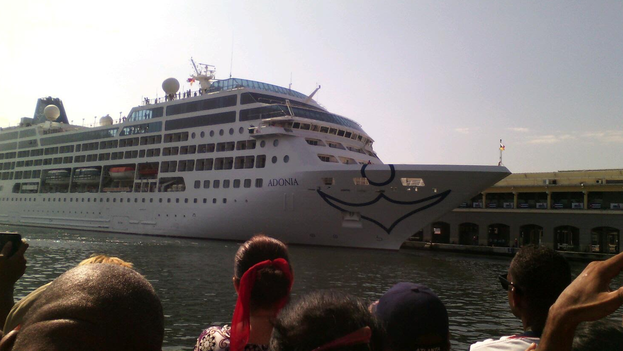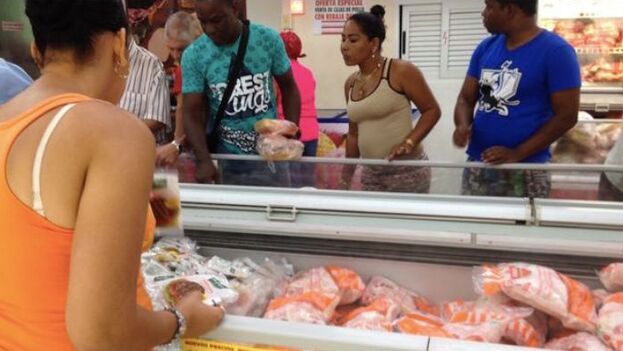
![]() 14ymedio, Elías Amor Bravo, Economist, 9 March 2023 — The tentacles of the Cuban communist regime extend to all areas of the economy and society. There is no space in Cuba that is not penetrated and controlled by the model devised by the so-called revolution. SMEs [small and medium-sized enterprises], for example, must be authorized by a political decision of the Ministry of Economy before advancing legally and administratively. Now, during the closing of the second general assembly of the Union of Computer Scientists of Cuba, Mayra Arevich, the Minister of Communications did the same with the group of computer professionals in the Union of Computer Scientists of Cuba, an entity of 7,000 members, among the youngest Cubans on the Island.
14ymedio, Elías Amor Bravo, Economist, 9 March 2023 — The tentacles of the Cuban communist regime extend to all areas of the economy and society. There is no space in Cuba that is not penetrated and controlled by the model devised by the so-called revolution. SMEs [small and medium-sized enterprises], for example, must be authorized by a political decision of the Ministry of Economy before advancing legally and administratively. Now, during the closing of the second general assembly of the Union of Computer Scientists of Cuba, Mayra Arevich, the Minister of Communications did the same with the group of computer professionals in the Union of Computer Scientists of Cuba, an entity of 7,000 members, among the youngest Cubans on the Island.
The ministry invaded the association’s jurisdiction, such as increasing membership or continuing alliances to support the management of territorial governments. This “accompaniment” of the ministry aims to control the organization of computer scientists, and it enters such specific areas as the training of members and citizens, in order to achieve “greater impacts on digital transformation.”
The minister even dared to point out what kinds of projects the organization should promote, and cited, for example, the 2022 Cuban Digital Agenda encouraging the training of local development agents, a kind of reissued “literacy campaign” that confirms that Fidel Castro’s grandchildren continue to deploy the same crazy initiatives as their grandfather. Then, they complain about the ’blockade’ [US Embargo] to justify the overall unproductivity of the system, but this is a good example: stay in your lane.
And all this interventionist apparatus of the ministry on the organization of computer scientists makes sense for the regime, to the extent that it contributes to promoting the digital government project. It is affirmed that, with this, it is possible to give greater opportunities to the citizenry in the development of a digital society. And here comes something amazing, because those opportunities must be based on the “construction of socialism and the fight against inequalities,” such as the digital divide. continue reading
The Castro regime mixes concepts in this way that are unrelated to each other: digitization, knowledge and socialism. Three legs for a table that will necessarily wobble, from the first moment.
It occurs to me that fighting the digital divide from Cuban socialism has a downside; that is, instead of developing the most advanced and innovative skills that exist in the field of new technologies, it is intended to extend literacy in basic skills, as was done in 1960; that is, to teach the four rules [Input, Processing, Storage and Output] and then, with the propaganda of the state press, tell everyone that In Cuba there are no digital breaches. And the bad thing about all this is that they believe it.
In reality, the Union of Computer Scientists has little to do to get out from under the clutches of the regime. And like the vast majority of organizations that barely survive in the Castro regime — I’m thinking of the ANAP [National Association of Small Farmers] — it will continue to play the same game of “support and commitment to continue supporting the revolutionary government in the process of digital transformation of society within socialism,” as recognized by Febles Estrada, president of the Union, before President Díaz-Canel, at the closing of the assembly of the organization at the Palacio de Convenciones.
That’s what the regime wants. Organizations aligned with their objectives to meet political goals that later end up being forgotten or openly violated. Everything else, which is really necessary, such as the professional and cultural growth of the members of the organization, takes a back seat. Obeying, from unity, is essential so that conflicts do not occur. It is not surprising that the assembly of computer scientists talked about voting together on March 26. I’m afraid that from now on we’re going to talk about this even at dinner.
At the same event, Díaz-Canel highlighted the importance of supporting the concept of the development of a digital society and knowledge. It must be evaluated positively, if we take into account that two or three years ago the concepts of computerization and digitization were confused, confirming a notable delay of the regime leadership on the subject of new technologies. It seems that they have been brought up to date, but the distance that Cuba maintains with respect to the technological challenges of the fourth industrial revolution is still remarkable.
And what would be the alternative for a really beneficial Union of Computer Scientists for Cuban society?
Let’s get to it with a few brief brushstrokes. Of course, computer professionals and new technologies are a source of creation for entrepreneurial projects that can generate business opportunities, not only in the present, but in the future.
The professional field of digitization services is advancing in all sectors in all countries and could pose opportunities for openness to foreign investment. The creation of startups of this type of services on the Island could serve to accumulate enough critical mass to generate more business projects, not only in the field of video games, but also in cybersecurity, the digitization of physical spaces, or telemedicine and the care of the elderly, among other things.
It would be a matter of betting on an international projection of the sector that would allow foreign capital to access concrete opportunities within the Island without state interference, at the same time that Cuban professionals are provided with exchanges with the outside world to advance in the creation of joint business projects.
In terms of training and qualification, we must also bet on the most advanced technologies of the fourth industrial revolution, intensifying exchanges with world-leading training centers. In short, the development of the sector should be coupled with a progressive consolidation of digital services in the economy, of course actively fighting against the digital divide and raising the level of the Cuban population and society, facilitated by initiatives for the structural transformation of the economy.
Have we seen anyone who in any of these initiatives needs a ministry or a government behind it for something? Not at all. This sector, that of new technologies, started in many countries in the garages of homes in the suburbs and with little capital. Talent is key, and in Cuba it exists. Unfortunately, the communist regime is not in favor of that kind of work. Its objectives do not go beyond mere alliances with Cuban civil society organizations, or with institutions such as the World Institute for Software Quality and Linux (free operating system), in addition to helping territorial development and little else. It’s an agenda for professionals of new technologies in Cuba controlled by the State and at the service of socialism.
Translated by Regina Anavy
____________
COLLABORATE WITH OUR WORK: The 14ymedio team is committed to practicing serious journalism that reflects Cuba’s reality in all its depth. Thank you for joining us on this long journey. We invite you to continue supporting us by becoming a member of 14ymedio now. Together we can continue transforming journalism in Cuba.

